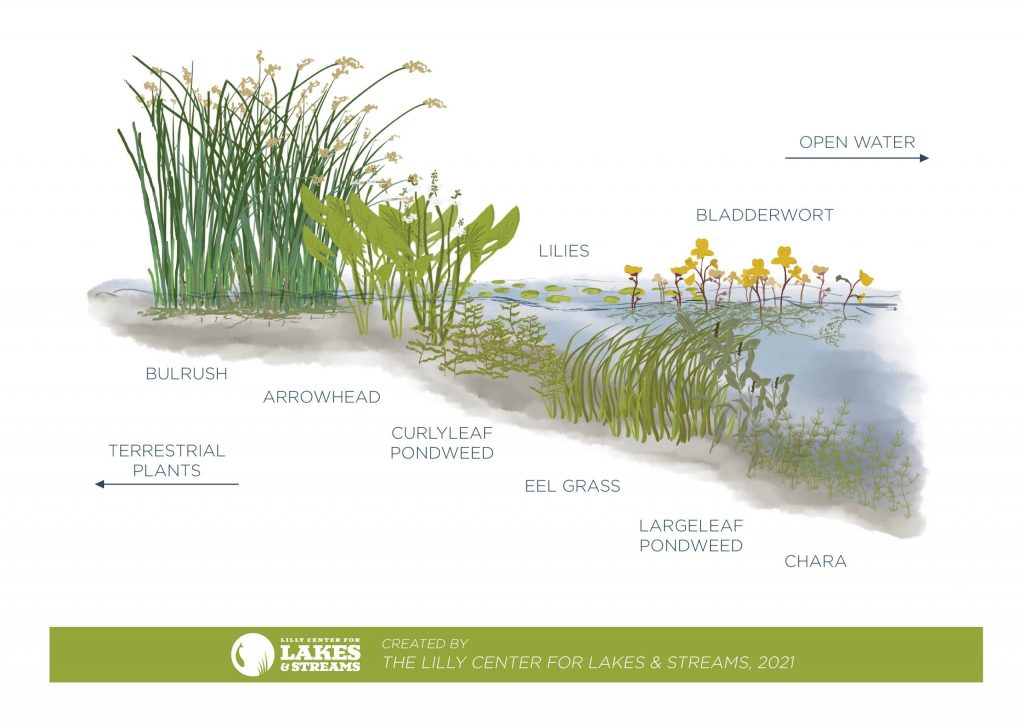Lake vegetation: pull it or leave it?
Ask anyone who visits a lake: Lake vegetation (specifically weeds) are one of the most frustrating parts about motoring out to the lake from a pier or navigating some of the shallower areas!
They get caught in engines and props, creating a yucky green mess and delaying enjoyment of the water. For all their negative qualities, though, aquatic plants are actually doing a huge service for the lake. When they grow in appropriate amounts, plants like bulrush or American pondweed are habitat-builders, pollution-filterers and dissolved oxygen-producers.

Lake vegetation that grows along the shoreline is the high-rise apartments of freshwater lakes. They house small fish, turtles and crayfish, as well as micro and macro invertebrates. Take a look at a shoreline that has healthy native plants and you may also spot the nests of ducks and birds.
And as the vegetation in the lake takes in sunlight and carbon dioxide, they release dissolved oxygen into the water, which is essential for fish and other aquatic organisms.
The plants’ roots anchor sediment and prevent the shoreline from eroding. They absorb pollutants (like fertilizer) washed in by rain and, with the help of sandy soil found along most shorelines, filter it out before it can reach the rest of the lake and cause algae to grow.
There can be too much of a good thing, though.
If allowed to grow excessively, lake vegetation can limit recreation. The solution, however, does not always need to involve spraying herbicide to kill all the weeds along large areas of the shoreline. In some cases, large applications of herbicide will do its job too well: It kills the plants, and the sudden increase in nutrients allows algae to flourish. Furthermore, the decay of these plants all at once can also decrease oxygen levels in the lake which is harmful to fish.
One potential alternative to consider is mechanical, weekly harvesting – sort of like a lawn mower for your lake! We recommend talking to a representative of your lake association before acting, because they can collect additional insights from the Indiana Department of Natural Resources and local environmental consulting companies.